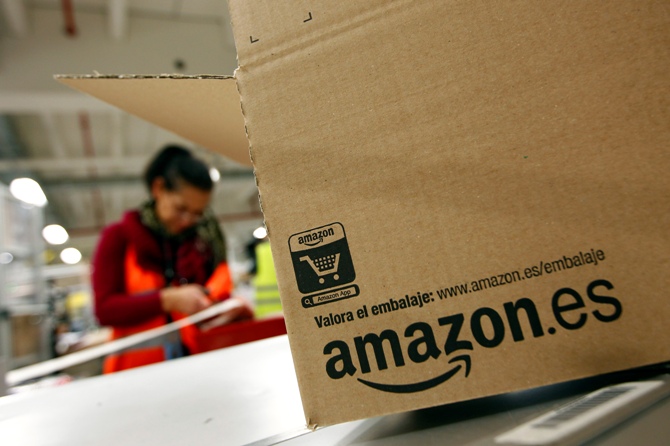The case may drag for a few years, experts say, as CAIT and DVM have said they will appeal against the interim relief granted to Amazon.

The courtroom battle between e-commerce giant Amazon and trade bodies, the Confederation of All India Traders (CAIT) and Delhi Vyapar Mahasangh (DVM), is expected to have a bearing on the upcoming e-commerce policy, according to people familiar with the matter.
The case may drag for a few years, experts say, as CAIT and DVM have said they will appeal against the interim relief granted to Amazon on Friday.
The Karnataka high court stayed the Competition Commission of India’s (CCI’s) investigation into the alleged anti-competitive practices on the part of the e-commerce giant.
“This is not over, it is an interim relief. The parties have been asked to restrengthen their arguments and come back in two months,” said a person familiar with the development.
“It is going to be a long case and it might have a bearing on the e-commerce policy.”
The government is in the process of developing an e-commerce policy to provide a level-playing field between online and offline players.
“This case is going to set a precedent not only for the e-commerce sector but other categories such as food delivery and cab-hailing... wherever local merchants are feeling threatened,” said Satish Meena, a senior forecast analyst at Forrester Research.
“We are expecting regulators to become more active in these sectors this year.
"This is certainly going to make life difficult for Amazon and Flipkart, as both are in the same boat in this case.”
The revised e-commerce policy, announced in December 2018, had barred online retail players from selling products through entities in which they own a stake.
Vendors were also not allowed to have more than 25 per cent of their revenues coming from a single platform.
“This cap might get reduced to 10-5 per cent,” said an industry executive who did not wish to be identified.
“The government might also take some steps to make sure the e-commerce players don’t have direct or indirect stakes in the sellers.”
The CCI had ordered an investigation against e-commerce companies based on a complaint filed by DVM, which alleged that the players were giving deep discounts and cherry-picking sellers.
Amazon in its writ petition in the HC made CCI, DVM and Flipkart as respondents.
DVM on Thursday gave examples in the court about how Amazon was promoting the sellers where it owned stake.
For instance, Cloudtail, one of the largest sellers on Amazon India, is owned by Prione Business Services, which is a JV between Amazon and Infosys co-founder N R Narayana Murthy’s Catamaran Ventures.
Also, another seller, Appario Retail is a subsidiary of Frontizo, which is a JV between Amazon and Patni Group.
Experts said the case may also have an impact on massive discounts that are offered throughout the year on the online platforms and may apply only for specific categories.
They said this case would also play a key role to motivate online retailers such as Amazon and Flipkart to provide more support to small sellers in terms of investments for capacity building and engaging closely with the State governments.
“They want to create this perception that we are not going to sell everything from our platform,” said another person who did not wish to be identified.
Last month, Amazon chief executive Jeff Bezos, during his India visit, announced that the company planned to invest $1 billion to help bring 10 million traders and micro, small, and medium enterprises (MSMEs) across India online, enabling $10 billion in cumulative exports by 2025.
The firm also said it planned to create 1 million jobs in India by 2025 through continued investments in technology, infrastructure, and its logistics network. Amazon has now so far committed $6.5 billion to the India market.
According to sources, what is also going to further impact the e-commerce policy is the entry of Mukesh Ambani-led Reliance Industries into the online retail business in the country, which is expected to touch $200 billion by 2028.
“We have to see how much they are going to push the government to make the policy actions more difficult for companies like Amazon and Flipkart,” said a person familiar with the development.
“Reliance has all the levers to pull when they are entering into a market and pushing for regulations that can go in their favour.”
Photograph: Michaela Rehle/Reuters










